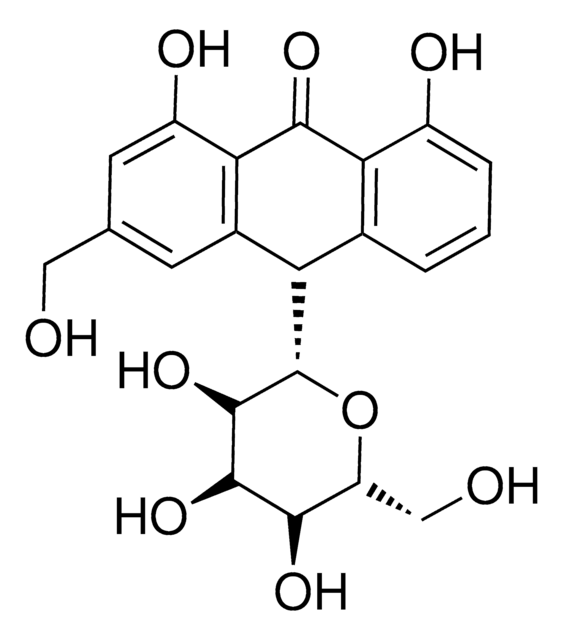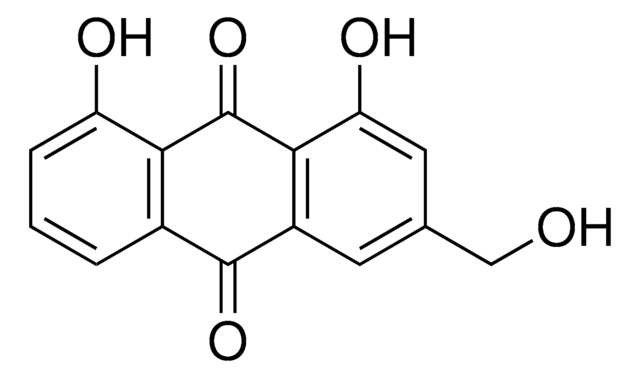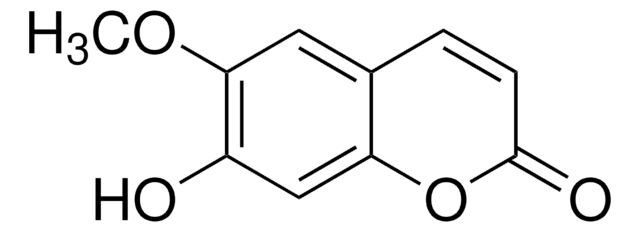A0451
Aloin
from Curacao aloe, ~50%
Synonym(s):
1,8-Dihydroxy-10-(β-D-glucopyranosyl)-3-(hydroxymethyl)-9(10H)-anthracenone, 10-β-D-Glucopyranosyl-1,8-dihydroxy-3-(hydroxymethyl)-9(10H)-anthracenone, Aloin A, Barbaloin
About This Item
Recommended Products
biological source
Curacao aloe
form
powder
concentration
~50%
color
yellow to brown
mp
418.39 °C ((785.10 °F ))
solubility
pyridine: 50 mg/mL, clear, dark red to very dark red and red purple
storage temp.
room temp
SMILES string
OC[C@H]1O[C@H]([C@H](O)[C@@H](O)[C@@H]1O)[C@H]2c3cccc(O)c3C(=O)c4c(O)cc(CO)cc24
InChI
1S/C21H22O9/c22-6-8-4-10-14(21-20(29)19(28)17(26)13(7-23)30-21)9-2-1-3-11(24)15(9)18(27)16(10)12(25)5-8/h1-5,13-14,17,19-26,28-29H,6-7H2/t13-,14+,17-,19+,20-,21+/m1/s1
InChI key
AFHJQYHRLPMKHU-OSYMLPPYSA-N
Looking for similar products? Visit Product Comparison Guide
Biochem/physiol Actions
Other Notes
Signal Word
Warning
Hazard Statements
Precautionary Statements
Hazard Classifications
Acute Tox. 4 Oral
Storage Class Code
11 - Combustible Solids
WGK
WGK 1
Flash Point(F)
Not applicable
Flash Point(C)
Not applicable
Personal Protective Equipment
Certificates of Analysis (COA)
Search for Certificates of Analysis (COA) by entering the products Lot/Batch Number. Lot and Batch Numbers can be found on a product’s label following the words ‘Lot’ or ‘Batch’.
Already Own This Product?
Find documentation for the products that you have recently purchased in the Document Library.
Our team of scientists has experience in all areas of research including Life Science, Material Science, Chemical Synthesis, Chromatography, Analytical and many others.
Contact Technical Service







